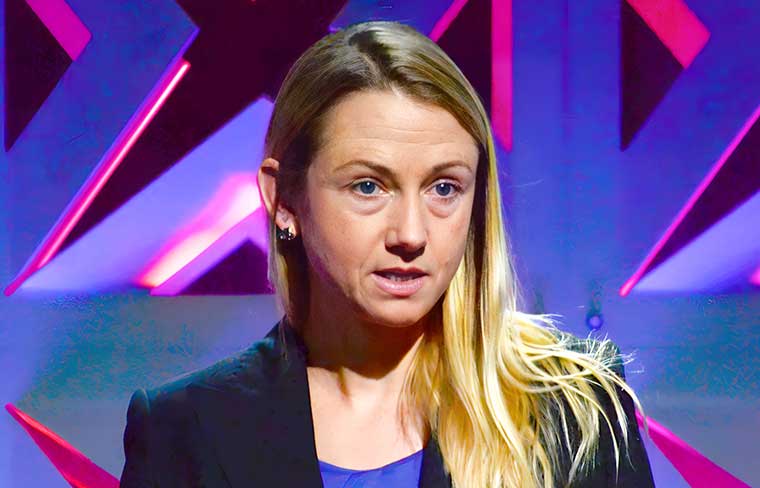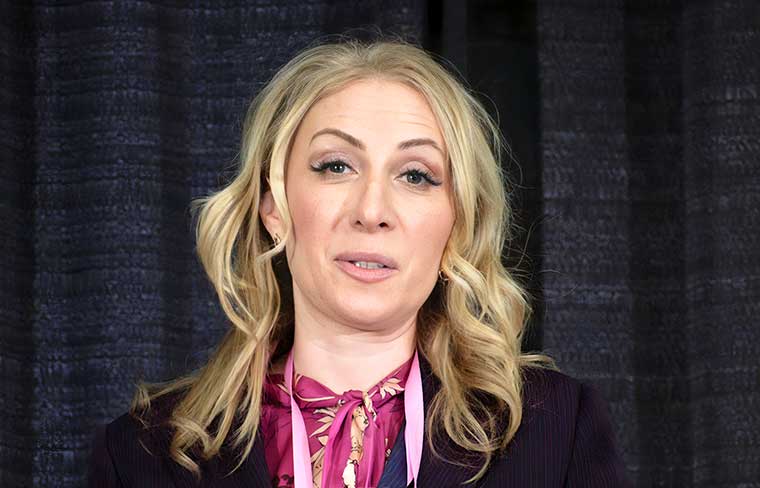-
Vasculitis Associated with Increased Pregnancy Complications
In Plenary III, researchers including Chi Chiu Mok, MD, FRCP, discussed new data on pregnancy and vasculitis, synovial lining fibroblasts, therapeutic targets in refractory lupus nephritis, premature mortality in gout, bone mineral density, and glucocorticoid use and cardiovascular health.
-
ARP Keynote: Lifestyle Medicine Benefits Patients
A healthy diet, physical activity, and stress resilience can often ameliorate disease-related symptoms such as pain, fatigue, and insomnia. In the ARP Keynote, Sarah Patterson, MD, gave an overview of research supporting lifestyle interventions for better patient outcomes and quality of life.
-
Experts Discuss the Potential of CAR-T Cell Therapy for Autoimmune Diseases
Investigation into chimeric antigen receptor (CAR)-T cells for the treatment of autoimmune diseases is still in its infancy. Panelists including Michel Sadelain, MD, PhD, discussed the fundamentals of CAR-T cell engineering and highlighted novel approaches.
-
Cardiologists Examine CV Risk Factors for Patients with Inflammatory Arthritis and the Growing Field of Cardio-Rheumatology
Cardiologists who have been working closely with rheumatologists to pursue further care and research of rheumatic conditions discussed the cardiovascular factors to consider and tools for cardiovascular risk assessment. Brittany Weber, MD, PhD, highlighted the versatility of colchicine for risk prevention.
-
Language Access Expert Shares Strategies to Optimize Care for Patients with Limited English Proficiency
Language barriers are associated with lower-quality clinical outcomes, increased length of stays in the hospital, and higher rates of readmission. Bella Elogoodin, MBA, described how language services enhance patient safety, improve health equity, and increase patient satisfaction.
-
ARP Distinguished Lecturer Shares Personal Story of Living with Rheumatic Disease
Kaleb Michaud, PhD, was diagnosed with rheumatoid arthritis as a toddler. As an adult, his career led to rheumatology research and a mission to promote shared decision-making to enable patients with rheumatic disease to achieve their personal goals.
-
Biobanks Present Opportunities to Crunch Big Data and May Provide Opportunities to Solve Problems in RA
Biobanks with both genetic data and clinical data from electronic health records on millions of patients have enabled researchers to study the relationship between genotypes and phenotypes. Katherine Liao, MD, MPH, will discuss how to leverage hospital-based biobanks and machine learning for personalized medicine for…
-
New Genetic Understanding Calls for Routine Polyarteritis Nodosa Testing in Children
PAN is a syndrome rather than a single disease, explains Tadej Avcin, MD, PhD. He will discuss registry data and treatment recommendations for children with this rare condition. Clinical features and imaging of PAN also will be discussed. Newly recognized monogenic disease forms mimic PAN…
-
Severe COVID-19 Advances Understanding of Genetic Influence on Immunology
Many of the pathways that influence COVID-19 outcomes are strongly associated with autoimmune disease. “There will be numerous lessons learned from COVID-19 that will apply to improving our understanding of various rheumatic diseases,” said session co-moderator Alfred Kim, MD, PhD.
-
Researchers Analyze Skin and Joints to Unlock the Psoriatic Arthritis Microenvironment
Identification of individual mechanisms that play a clear role in driving joint disease has proven challenging for researchers. Experts including Christopher Ritchlin, MD, MPH, will explore recent work that describes key biologic processes, including perturbations in immune and stromal cells and the microbiome.










